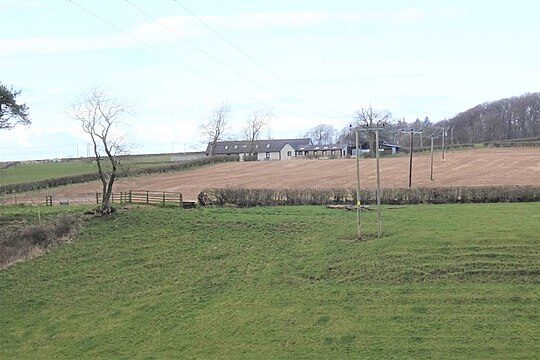
UK environment goals were described as “irrational” and “unachievable” by the farmers’ union.
According to documents, NFU raised concerns regarding targets for rewilding, tree planting, and water pollution.
According to documents released by the environment department, the National Farmers’ Union (NFU) questioned the proposed government targets on water pollution, tree planting, and rewilding, describing them as “irrational” and “unachievable.”
The government was required by the 2021 Environment Act to set legally binding goals for nature recovery and environmental enhancement. It began consultation on those goals in March 2022. Among its recommendations is an increase in woodland cover and tree canopy from 14.5% to 17.5% of England’s total land area by 2050. In the beginning, targets for reducing water pollution were set for 2037.
There was some dissatisfaction following the publication of the targets and the conclusion of the consultation. The target for water pollution had been postponed until 2038, and the target for tree canopy had been reduced to 16.5%.
The NFU’s response, as evidenced by the recently released consultation documents, was highly critical of the initial proposals.
Proposals to reduce nutrient pollution from fertiliser and animal waste, according to the lobby group, which represents influential agricultural voices, are “irrational.”
It told the government: “Broadly, we consider the level of ambition across the nutrient targets to be unachievable, inconsistent and irrational. The NFU and its members are committed to building on past successes and further reducing nutrient losses to the environment from agriculture. However, this effort must be balanced with the need to produce food, fibre and energy on farm, thereby protecting the rural economy and maintaining food security.”
The union also stated that it opposed targets to halt the extinction of species and specifically opposed the reintroduction of extinct species. It read, “The NFU has long advocated that we should support species that are already present before we seek to introduce new species. So instead, we believe that we should aim to prevent the loss of species, as such a bespoke target approach to rare and threatened species could be beneficial in driving action to reduce biodiversity loss.”
It argued that the concept of rewilding was damaging to the countryside, warning against “adopting an approach that risks undermining the social fabric of rural communities”. It said: “Rewilding, for example, ignores the fact that our iconic farmed landscapes are valued by the many who make 4bn visits to the British countryside each year.”
It also said the tree planting target of 17.5% coverage was too ambitious. “An increase in tree canopy and woodland cover from 14.5% to 17.5% equates to 415,000 hectares of tree cover by 2050, approximately 15,000 hectares of trees a year. This is extremely ambitious, if not unachievable,” it said.
Following the disclosure of the union’s lobbying against nature restoration policies, environmental organisations declared the union to be “deluded and dangerous” and to be “stifling progress toward a greener future.”
Rob Percival, the head of food policy at the Soil Association, said: “The NFU’s attitude towards environmental targets is defeatist, deluded and dangerous. There is clear scientific rationale for regenerating woodlands and increasing tree cover, but the NFU thinks it’s too difficult. Our rivers are choking on excess nutrients, primarily due to the proliferation of intensive livestock systems, but the NFU has dismissed pollution reduction targets as ‘irrational’. Instead they propose more of the same – more poultry, more pollution.
“It’s bizarre and unfortunate that the NFU is displaying such a lack of imagination when the stakes are so high. Resolving the climate and nature crises will entail difficult trade-offs in land use, and a radical shift in the way that we eat and farm. With the right policies in place, farmers and producers can be paid to lead the change. In adopting such an obstructionist stance, the NFU is letting down its members, failing the public, and stunting progress towards a greener future.”
A Defra spokesperson said: “We have full confidence in our Environment Act targets, which were established through intensive consultation with businesses, land managers and environmental organisations. The delivery of these targets will require a shared endeavour across the whole of government, business and the individual decisions we all make, and through the Environment Act we have ensured a robust legal framework to hold current and future governments to account, protecting nature for generations to come.”
NFU director of policy Dr Andrew Clark said: “British farmers share the government’s environmental ambitions, but these targets must work in tandem with producing quality, sustainable food.
“The government’s own land use strategy seems to conflict with its ambitions for nature as well as delivering on its self-sufficiency targets, as set out in the national food strategy.
“Our consultation response highlighted that we need environmental targets which are ambitious but deliverable, and which sit alongside equally ambitious plans for domestic food production and UK food security.”
——————————————————————————
At Natural World Fund, we are passionate about stopping the decline in our wildlife.
The declines in our wildlife is shocking and frightening. Without much more support, many of the animals we know and love will continue in their declines towards extinction.
When you help to restore a patch of degraded land through rewilding to forests, meadows, or wetlands, you have a massive impact on the biodiversity at a local level. You give animals a home and food that they otherwise would not have had, and it has a positive snowball effect for the food chain.
We are convinced that this is much better for the UK than growing lots of fast-growing coniferous trees, solely to remove carbon, that don’t actually help our animals to thrive.
This is why we stand for restoring nature in the UK through responsible rewilding. For us, it is the right thing to do. Let’s do what’s right for nature!
Support our work today at https://naturalworldfund.com/ and join in the solution!

